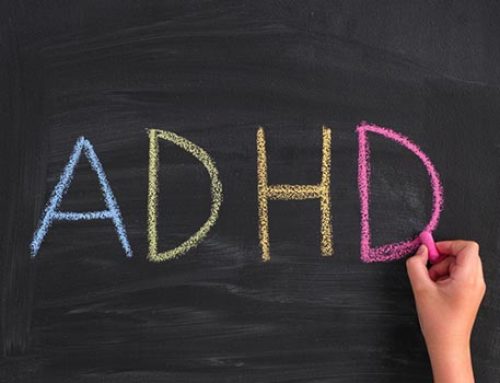
As an ADHD and Executive Function coach, I am often asked to explain the difference between ADHD and executive function deficits.
It is important to note that ADHD, which stands for Attention Deficit and Hyperactivity Disorder, is a defined disorder in the Diagnostic and Statistical Manual of Mental Disorders, 5thEdition (“DSM-5). The DSM-5 is used by health care practitioners to diagnose a variety of mental disorders. The DSM-5 provides a list of symptoms and criteria that practitioners can use to provide an accurate diagnosis and to determine the appropriate treatment.
Although problems with executive function are often termed as Executive Function Disorder, it is not, in fact, a defined mental disorder. Instead, the “disorder” is actually a deficit in one’s ability to manage and execute daily tasks.
Individuals with ADHD often have significant difficulty with executive function. It is natural, therefore, to combine the two and look at them as one disorder. However, executive function deficits may be present without ADHD. As an example, a person with a learning challenge might have an executive function deficit, but they might not have ADHD.
In order to clear up some of the confusion, it might be useful to look at the definitions of ADHD and executive function.
ADHD Defined
ADHD has a clearly defined set of symptoms. This is sometimes not apparent to the individual who is being diagnosed, or to the parents. It is useful to look at the full list of symptoms that are specific to ADHD in order to be sure you understand the diagnosis. If you have any questions with regard to these criteria, you should have a discussion with your health care practitioner.
According to the DSM-5, Attention Deficit Hyperactivity Disorder is “persistent pattern of inattention and/or hyperactivity-impulsivity that interferes with functioning or development”.
In order for a person to be diagnosed with ADHD, the following conditions must be met, along with a set of symptoms related to the specific type of ADHD:
- Several symptoms were present before age 12 years.
- Several symptoms are present in two or more setting, (e.g., at home, school or work; with friends or relatives; in other activities).
- There is clear evidence that the symptoms interfere with, or reduce the quality of, social, school, or work functioning.
- The symptoms do not happen only during the course of schizophrenia or another psychotic disorder. The symptoms are not better explained by another mental disorder (e.g. Mood Disorder, Anxiety Disorder, Dissociative Disorder, or a Personality Disorder).
There are three subtypes of ADHD, each defined by their own set of criteria.
1. Attention Deficit Hyperactivity Disorder – Hyperactive Type
Six or more symptoms of hyperactivity and/or impulsivity for children up to age 16, or five or more for adolescents 17 and older and adults; symptoms of hyperactivity-impulsivity have been present for at least 6 months to an extent that is disruptive and inappropriate for the person’s developmental level:
- Often fidgets with or taps hands or feet, or squirms in seat.
- Often leaves seat in situations when remaining seated is expected.
- Often runs about or climbs in situations where it is not appropriate (adolescents or adults may be limited to feeling restless).
- Often unable to play or take part in leisure activities quietly.
- Is often “on the go” acting as if “driven by a motor”.
- Often talks excessively.
- Often blurts out an answer before a question has been completed.
- Often has trouble waiting his/her turn.
- Often interrupts or intrudes on others (e.g., butts into conversations or games)
2. Attention Deficit Hyperactivity Disorder – Inattentive Type
Six or more symptoms of inattention for children up to age 16, or five or more for adolescents 17 and older and adults; symptoms of inattention have been present for at least 6 months, and they are inappropriate for developmental level:
- Often fails to give close attention to details or makes careless mistakes in schoolwork, at work, or with other activities.
- Often has trouble holding attention on tasks or play activities.
- Often does not seem to listen when spoken to directly.
- Often does not follow through on instructions and fails to finish schoolwork, chores, or duties in the workplace (e.g., loses focus, side-tracked).
- Often has trouble organizing tasks and activities.
- Often avoids, dislikes, or is reluctant to do tasks that require mental effort over a long period of time (such as schoolwork or homework).
- Often loses things necessary for tasks and activities (e.g. school materials, pencils, books, tools, wallets, keys, paperwork, eyeglasses, mobile telephones).
- Is often easily distracted.
- Is often forgetful in daily activities.
3. Attention Deficit Hyperactivity Disorder – Combined Type
Enough symptoms of both inattention and hyperactivity-impulsivity criteria were present for the past 6 months.
Executive Function Defined
Executive function skills are the mental processes that enable an individual to manage daily tasks successfully. Executive function allows an individual to filter out distractions, prioritize tasks, set and achieve goals, and control impulses. An important aspect of executive function is the individual’s ability to self-regulate. This is the ability to control one’s own behavior without intervention from others.
Dr. Thomas Brown outlines some of the primary executive function tasks:
- Getting organized, prioritizing and getting started on tasks
- Focusing on what needs to be done, continuing to focus and shifting focus as needed
- Regulating sleep and alertness and keeping up effort to finish things on time
- Managing emotions so they don’t take over too much
- Using short-term memory to keep multiple things in mind and recall them when needed
When a person has an executive function deficit, any or all of the above can be compromised. Some executive function deficits are as follows:
- Difficulty paying attention
- Difficulty with self-control
- Trouble managing emotions
- Difficulty holding information in working memory
- Trouble switching easily from one activity to another
- Trouble getting started and staying on task
- Challenges with time management
- Trouble organizing materials
- Difficulty remembering and keeping track of tasks and assignments
- Difficulty completing long-term projects
- Impulsive acting before thinking
- Easily distracted and often forgetful
- Trouble waiting one’s turn
The Difference Between ADHD and Executive Function Deficits
By now, you are probably struggling to see the difference between ADHD and executive function deficits. The presentation of the symptoms is so similar as to be almost indistinguishable.
The following may clarify the difference:
- Executive function skills are not something that you are innately born with. Instead, these skills develop over time, and they are usually not fully developed until the late teens or early twenties. It is important, therefore, to note that executive function skills are learned behaviors, whereas ADHD is considered to be a result of a chemical difference in brain functioning. Those individuals with ADHD are thought to have a 3 to 5 year lag in their ability to develop these skills.
- When considering if a person has an executive function deficit, there is no criteria that says that the deficits in these skills must exist for 6 months or longer. Instead, they are a continuum of skills that develop into maturity.
- According to Dr. Thomas Brown, ADHD is primarily an attention disorder, whereas executive function is primarily related to one’s ability to focus.
Is the difference important? If you have a diagnosis of ADHD, it may not be very important. The behavioral interventions will likely be similar. However, if you do not have ADHD, but you struggle with executive function deficits, this is an extremely important to know the difference.
As an ADHD and Executive Function coach, I help individuals find a way to manage their challenges. If you would like to learn more about the behavioral interventions used with ADHD and executive function deficits, contact me.






